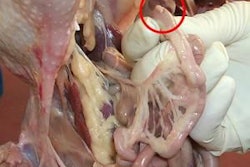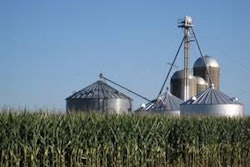
Tyson Foods is back at the top of WATT PoultryUSA’s broiler rankings after three years in the No. 2 spot behind Pilgrim’s Pride. Donnie Smith took over the management reigns from interim CEO Leland Tollett late in 2009, a year in which Tyson reported improvements in product mix, yield and live performance in chicken operations.
The No. 1 ranking reverted to Tyson as it asserted its operational and financial fortitude during 2008-09’s high corn prices and global financial crisis – circumstances that swamped Pilgrim’s Pride and sent it into bankruptcy at the end of 2008.
Pilgrim’s Pride is solvent again – having emerged from bankruptcy in December of 2009 – and is ranked No. 2 in ready-to-cook (RTC) broiler production. And what a difference its new management team made during the 13 months of bankruptcy protection! This time last year Pilgrim’s shares fetched only pennies, and creditor and bondholder claims were valued at pennies on the dollar. Now, a restructured, more profitable Pilgrim’s Pride, with the backing of new majority owner JBS USA, is paying creditors and bondholders in full.
The game-changing development taking shape in the U.S. broiler rankings, however, is that the No.1 and No. 2 ranked companies are now global, multi-protein players. It’s a business model that has implications in the U.S. and internationally. Other Brazilian-based protein companies are said to be studying possible moves to achieve similar diversification.
Mid-sized firms grow production
While the conventional wisdom is that mid-sized firms can be expected to take the brunt of competitive pressure when larger firms develop more scale efficiencies and market clout, the majority of mid-sized broiler companies increased RTC production in 2009. This occurred in a year when the top nine broiler firms posted reductions or only modest increases in RTC production.
Of the 15 companies ranked No. 10 through No. 24, nine reported RTC production increases of 4.4% or more. Four of those firms reported increases greater than 10%. Meantime, only two firms ranked No. 25 or lower reported increases in RTC production.
New complex back on track
Other major developments included No. 4 ranked Sanderson Farms putting construction of a Kinston, N.C., chicken complex back on track after having suspended the project during the high grain prices and economic recession of 2008-09. The company is moving forward with the construction of a feed mill, poultry processing plant and hatchery. Sanderson expects to place its first live pullets in North Carolina in April 2010 and begin processing operations there in January 2011.
No. 3 ranked Perdue Farms announced plans to invest $3.7 million in 2010 to expand production by 40% at one of the company’s Salisbury hatcheries and nearly double hatch production at the hatchery in Kenly, N.C. Perdue will close its hatcheries in Showell and Bishopville, Md., in May of 2010.
No. 9 ranked Keystone Foods Poultry Division opened a new, $118 million fully-cooked further processing facility in Gadsden, Ala, in 2009.
Foster acquired Louisiana facility
No. 10 ranked Foster Farms acquired the Farmerville, La., broiler facility, which had been closed earlier by Pilgrim’s Pride.
No. 16 ranked Townsends opened the Townsend Specialty Foods Atlanta business unit and Innovation Center in December of 2009. The new business unit provides further-processed poultry products and services to the foodservice industry.
No. 17 ranked Case Foods completed capital improvements valued at $15.9 million, including $14 million for a new feed mill in Ohio and $1.9 million for a mechanically separated chicken (MSC) operation in Morgantown, N.C.
No. 38 ranked Empire Kosher Poultry increased processing capacity 50% by installing a high-speed evisceration/processing line, which allows kosher production. The company also expanded its antibiotic-free and organic production.

















